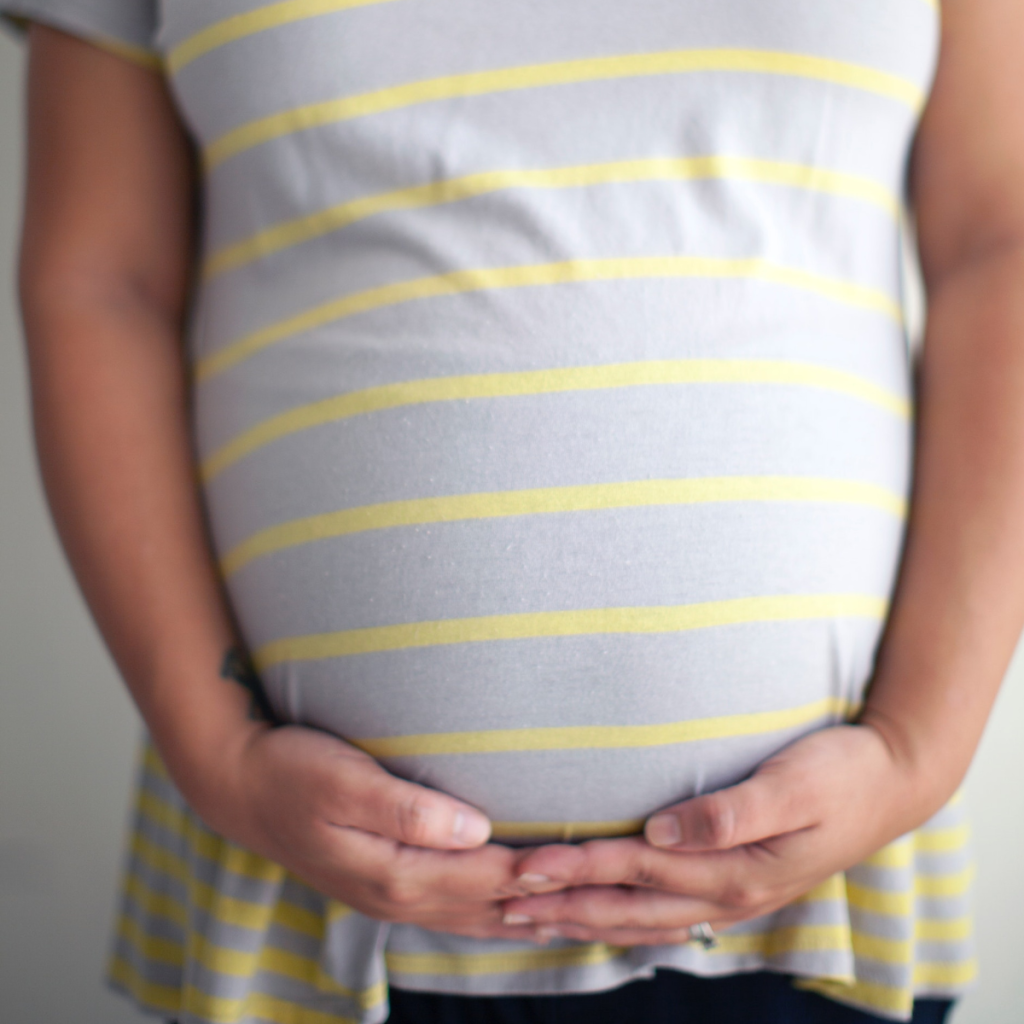Discover how mattress firmness can impact back pain in new mothers.
How Does Mattress Firmness Affect Back Pain in New Mothers?
Welcome to the world of new motherhood! While this is an incredibly joyous and exciting time, it can also be accompanied by the not-so-pleasant experience of back pain. Fear not, for we are here to explore the fascinating connection between mattress firmness and back pain in new mothers. So, let’s dive right in and uncover the secrets to a pain-free slumber!
Understanding Back Pain in New Mothers

Before we delve into the realm of mattresses and their magical powers, let’s take a moment to understand why new mothers may experience back pain. As we all know, the miracle of pregnancy can take quite a toll on the body, including the spine. The added weight, hormonal changes, and altered posture during pregnancy can put significant strain on the back, leading to discomfort even after childbirth.
During pregnancy, the body goes through numerous changes to accommodate the growing baby. The spine, which acts as the main support for the body, has to bear the additional weight of the baby and the expanding uterus. This increased load can cause the spine to become misaligned and put pressure on the surrounding muscles and nerves.
Furthermore, the hormonal changes that occur during pregnancy can also contribute to back pain. The body produces a hormone called relaxin, which helps to loosen the ligaments in the pelvic area to prepare for childbirth. However, this hormone can also affect the ligaments in the back, making them more prone to strain and injury.
The Connection Between Pregnancy and Back Pain
Pregnancy – the time when life is growing inside you – can also bring about some not-so-pleasant changes in your body. The hormones produced during this miraculous journey can cause ligaments to relax, including those in your back. This, in turn, can contribute to increased stress on the spine, resulting in the dreaded back pain.
As the baby grows, the center of gravity shifts forward, causing the body to compensate by leaning backward. This altered posture can put additional strain on the back muscles, leading to discomfort and pain. The expanding uterus also pushes against the diaphragm, which can affect proper breathing and contribute to back pain.
Additionally, the abdominal muscles, which help support the spine, may become weakened during pregnancy. This lack of support can further exacerbate back pain and make it more difficult for new mothers to engage in daily activities.
Postpartum Back Pain: What’s Normal and What’s Not
So, you’ve brought your bundle of joy into the world, but what’s with this lingering back pain? While some postpartum back pain is considered normal as your body adjusts to no longer carrying a tiny human, it’s crucial to distinguish between what’s considered typical and what might require some extra attention. If the pain is severe, persistent, or interferes with your daily activities, it’s time to seek professional advice.
After giving birth, the body goes through a process of recovery and readjustment. The ligaments that were stretched during pregnancy gradually regain their strength, and the muscles that were weakened begin to rebuild. However, this process takes time, and it is not uncommon for new mothers to experience back pain during this period.
It is important to note that postpartum back pain can also be caused by other factors such as poor posture while breastfeeding, lifting and carrying the baby, or lack of proper rest and self-care. These factors can contribute to muscle strain and tension in the back, leading to discomfort and pain.
While mild to moderate postpartum back pain is generally considered normal, it is essential to listen to your body and seek medical advice if the pain becomes severe or persists for an extended period. A healthcare professional can evaluate your condition, provide appropriate treatment, and offer guidance on exercises and lifestyle modifications to alleviate the pain and promote a healthy recovery.
The Role of Mattress Firmness in Sleep Quality
Now that we’ve taken a sneak peek into the world of new mothers and back pain, let’s shift our focus to the incredible influence mattress firmness can have on our sleep quality. Ah, sleep – that sweet sanctuary where dreams come alive and our bodies rejuvenate. But did you know that the firmness of your mattress can significantly impact this magical experience?
Imagine yourself sinking into a cloud-like mattress, perfectly cradling your body as you drift off into dreamland. Or perhaps you prefer a firmer surface, providing sturdy support to align your spine and relieve any pressure points. Whatever your preference, the firmness of your mattress plays a vital role in determining the quality of your sleep.
The Science Behind Mattress Firmness
Prepare to have your mind gently blown by the science of mattress firmness! The firmness of a mattress refers to its ability to provide support and distribute your weight evenly. But how does it achieve this remarkable feat?
Let’s delve into the inner workings of mattress construction. Beneath that plush or firm surface lies a complex system of materials carefully engineered to optimize comfort and support. From memory foam to pocketed coils, each component contributes to the overall firmness and feel of the mattress.
But finding the perfect balance is key to achieving a good night’s sleep without compromising on comfort. A mattress that is too soft may cause your body to sink too deeply, leading to misalignment of the spine and potential discomfort. On the other hand, a mattress that is too firm may create pressure points and restrict blood flow, resulting in a restless night’s sleep.
How Mattress Firmness Can Influence Sleep Patterns

Picture this: you’ve found the holy grail of mattresses, perfectly tailored to your sleeping style and preferences. But, dear reader, did you know that mattress firmness can also influence your sleep patterns? Yes, it’s true! The right firmness can enhance spinal alignment, alleviate pressure points, and help you maintain a comfortable temperature throughout the night. All of these factors contribute to a deeper and more restful sleep.
When your mattress provides optimal support and aligns your spine, it allows your muscles to relax fully. This relaxation promotes better blood circulation, reducing the likelihood of waking up with numbness or tingling in your limbs. Additionally, a mattress with the right firmness can alleviate pressure points, preventing discomfort and allowing you to stay in a deep sleep state for longer periods.
Furthermore, temperature regulation is crucial for a good night’s sleep. A mattress that is too soft may trap heat and cause you to overheat during the night, leading to restless tossing and turning. Conversely, a mattress that is too firm may not provide enough airflow, leaving you feeling cold and uncomfortable. The ideal firmness level ensures that your body stays at a comfortable temperature, allowing you to sleep soundly throughout the night.
So, as you embark on the quest for the perfect mattress, remember the significance of firmness in achieving the sleep quality you deserve. Whether you prefer a cloud-like softness or a sturdy support, finding the right balance will unlock the door to a world of restful nights and energized mornings.
Mattress Firmness and Back Pain: The Connection
Alright, buckle up, folks! We’ve arrived at the heart of the matter – the fascinating connection between mattress firmness and back pain. Let’s dive right into the world of mattresses and discover how firmness can help soothe those achy back muscles.
How a Firm Mattress Can Affect Back Pain
Does your back pain need a firm “hand” to help you out? If so, a firm mattress might be just the ticket! A firm mattress provides excellent support for your spine, keeping it in proper alignment and relieving pressure points that could contribute to back pain. Think of it as your personal sleep chiropractor, gently coaxing your back into a much-needed state of relaxation.
The Impact of a Soft Mattress on Back Pain
But wait, what if you’re in the soft mattress camp? Fear not, for we cater to all, even those who prefer to float on a cloud while they slumber! While a soft mattress may not be the go-to for back pain relief, it can still offer some benefits. The cushioning effect of a soft mattress can alleviate certain pressure points and provide a cozy nest for your body. However, be mindful that excessive softness may not provide the necessary support for your spine, potentially exacerbating back pain in the long run.
Choosing the Right Mattress Firmness for New Mothers
Now, the moment you’ve all been waiting for – the ultimate guide to choosing the right mattress firmness for new mothers. So, grab a comfortable seat (preferably not a lumpy one) and let’s explore the factors to consider in your quest for the perfect mattress.
Factors to Consider When Choosing Mattress Firmness
When embarking on the journey to find your dream mattress, there are a few essential factors to keep in mind. Firstly, consider your sleeping position. Side sleepers may benefit from a slightly softer mattress to accommodate their hips and shoulders, while back sleepers may prefer a firmer surface for optimal spinal alignment.
Secondly, take into account your body weight. If you’re on the lighter side, a medium-firm mattress might be your sweet spot, offering the right balance of support and comfort. On the other hand, if you’re on the heavier side, a firmer mattress may be better equipped to handle the distribution of weight and maintain proper spinal alignment.
Lastly, don’t forget to consider your personal preferences. Remember, you’re the one who will be snuggling up to this mattress every night, so make sure it feels like a match made in sleep heaven!
Tips for New Mothers to Find the Right Mattress
Here are a few additional tips to guide new mothers on their mattress-finding quest. First and foremost, do your research! Read customer reviews, compare features, and don’t hesitate to reach out to mattress experts for guidance. Additionally, take advantage of trial periods offered by mattress companies to ensure that the chosen mattress truly meets your needs.
Furthermore, if back pain persists or intensifies, don’t hesitate to consult with a healthcare professional. They can provide valuable insights tailored to your specific situation and help you make an informed decision.
Other Ways to Alleviate Back Pain for New Mothers
While mattress firmness plays a significant role in back pain relief, other factors also come into play. Let’s explore a couple of other strategies to alleviate back pain and promote a healthier, pain-free lifestyle for new mothers.
Importance of Proper Sleep Position
Your sleep position can make a world of difference in alleviating back pain. Experiment with different sleep positions to find the one that provides the most comfort and support for your back. Adding extra pillows for support or investing in a specialized pregnancy pillow can also help ease back pain during sleep.
The Role of Exercise and Stretching in Back Pain Relief
Exercise, oh glorious exercise! Incorporating gentle exercises and stretches into your daily routine can work wonders for your back pain. Low-impact activities like walking, swimming, and prenatal yoga can help strengthen your back muscles, improve flexibility, and provide much-needed relief. Remember to consult with your healthcare provider before starting any exercise regimen.
And there you have it, dear new mothers – the intertwined relationship between mattress firmness and back pain. While selecting the right mattress may feel like a daunting task, armed with the knowledge gained here, you’ll be well on your way to blissful nights and pain-free days. So go forth, try out those mattresses, and embrace the amazing journey of motherhood with a well-supported and pain-free back!



